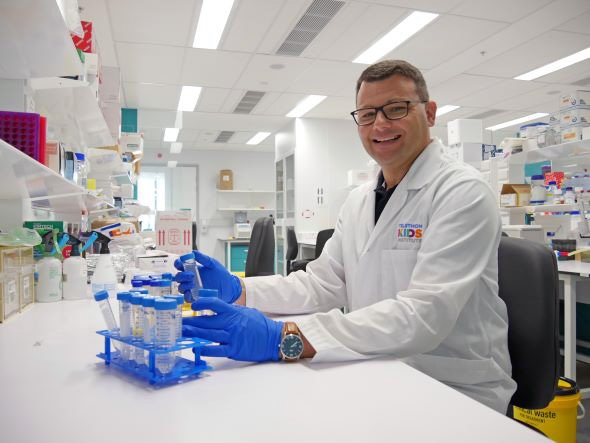Search
Showing results for "1"

This project aims to investigate the impact of a non-severe burn injury on children's health for life.

News & Events
New Study ‘Plugs’ Digital Intervention for Perinatal Mental HealthNew Study ‘Plugs’ Digital Intervention for Perinatal Mental Health

News & Events
New study to find COVID-fighting properties in existing medications thanks to national grantNearly 50 existing prescription medications already used by Australians will be tested by new research in the fight against COVID’s mutant variants.

Find out about the research outputs for the Development Pathways Project, and see the published research outcomes.
Research
Clinical outcomes for young people with screening-detected and clinically-diagnosed rheumatic heart disease in FijiYoung people with screening-detected RHD have worse health outcomes than screen-negative cases in Fiji.
Research
Fetal head circumference growth in children with specific language impairmentThe aim was to characterise fetal brain growth in children with specific language impairment (SLI). A nested case-control study was set in Perth, WA.

News & Events
“Correlation doesn’t equal causation”: Autism and caesarean sectionsA new study that combines data from over 20 million births has found that a caesarean section delivery is associated with autism spectrum disorder (autism) and attention-deficit hyperactivity disorder (ADHD).

News & Events
Technology powering researchResearchers at The Kids are harnessing the power of apps and other online tools to ensure the results of their research reach those who need it most – children, young people and families.
Research
#TraumaTok-TikTok Videos Relating to Trauma: Content AnalysisExperiencing a traumatic event can significantly impact mental and emotional well-being. Social media platforms offer spaces for sharing stories, seeking support, and accessing psychoeducation. TikTok (ByteDance), a rapidly growing social media platform, is increasingly used for advice, validation, and information, although the content of this requires further study.
Research
Topical antiseptics for chronic suppurative otitis mediaThe effectiveness and safety profile of antiseptics in the treatment of chronic suppurative otitis media is uncertain
